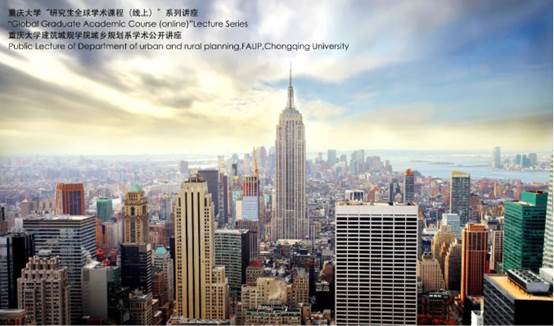On the morning of September 9, 2022, CQU's "Global Graduate Academic Course" Lecture Series---"Smart Transportation and Urban Planning" was successfully held online. In this lecture, professor Fan Yingling from the Humphrey School of Public Affairs, University of Minnesota was invited as the speaker and professor Xu Miao and Dr. Wang Lisha from the Faculty of Architecture and Urban Planning, Chongqing University respectively acted as the host and honored guest.
This lecture was themed on "Happy Cities: The Role of Transportation and Urban Planing". After introducing to students the related research on happiness in city, Fan said that the research on happiness in city was very important for improving social equality and she hoped to explore an urban space that would enable people to generate and share positive emotions by studying people's emotional feelings.
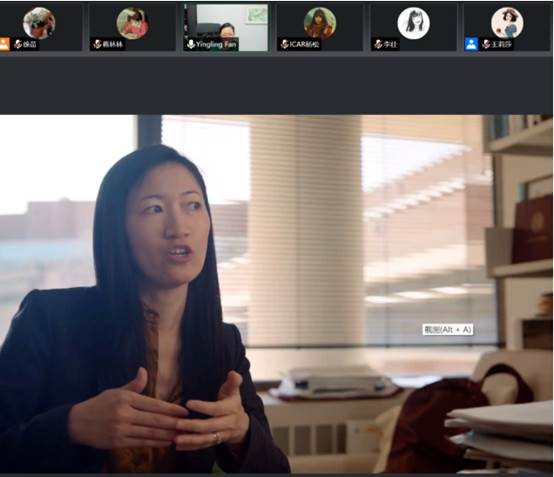
Photo of speaker, professor Fan Yingling
First of all, Fan introduced to the students the positive emotion theory and the critical theory in psychology. The positive emotion theory shows that positive emotions can make people like to communicate with the outside world, thus establishing more social support. This kind of happiness can promote the positive development of individuals and society. Based on this theory, urban planners can make use of the relationship among environment, behavior and emotion to promote human development. Based on the critical theory, Fan explained that it was necessary to study people's life experiences from a critical perspective to reveal and challenge the power structure. She also pointed out that in urban planning, the views of more marginalized groups should be made the center of discourse.
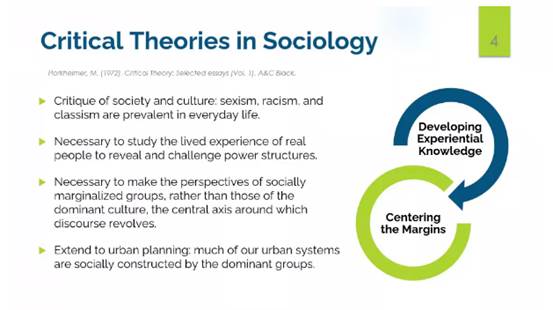
Positive emotion theory and critical theory
Aiming at how to collect and measure people's daily activities and feelings, Fan proposed the mixed survey method. This method can collect more comprehensive and accurate results by combining smart phone sensor to automatically detect, supplement and correct the activity information of people. Fan drew four important conclusions after summarizing a series of researches: ① Gender, race and class play an important role in shaping urban life experience; ② In cities, the emotional happiness of women, colored races and low-income population is relatively lower; ③ Gaps in gender, race and class for happiness have obvious influence on daily life style; ④ Exposure to green space and urban gardening can help narrow the gender gap in happiness.
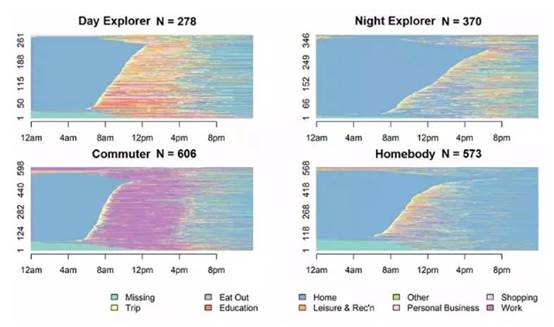
Daily activity patterns of people with different lifestyles
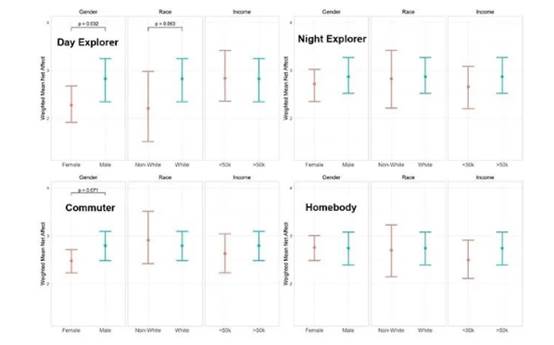
Correlation between the four lifestyles and gender, race and income
In the second part of the lecture, Fan mainly explained the research on happiness related to transportation. She pointed out that transportation meant education opportunities, employment opportunities, social communication opportunities, and also meant whether people could participate in society. Therefore, understanding the happiness of urban residents in transportation was of great significance for promoting social equity. Taking the United States as an example, Fan, combined with the analysis on the unemployment and the transportation in low-income and poverty-stricken areas in Twin Cities, put forward the view that urban planners should pay attention to people's emotional feelings in transportation and consider centering the margins. At the same time, she said that the quality and inclusiveness of public transportation were crucial to building equity and empathy, and future urban planning should be innovative in public transportation services.
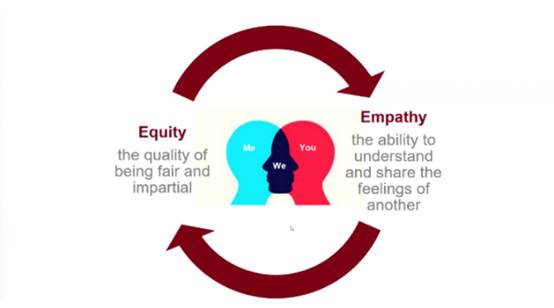
Empathy and social equity
In questioning session, Fan gave explanations and answers to the questions raised by the students on the development of public transportation at home and abroad, travel experience, service quality, etc. Wang Lisha agreed with Fan's views on public transportation, and further discussed with Fan on issues related to road traffic organization such as driverless cars and traffic volume.
In conclusion speech, Xu Miao said that this lecture, from the perspective of people's behavior and perception, guided students to think and explore the relationship between smart transportation and the city step by step and reflected the teachers' profound knowledge and teaching experience in simple terms. It was a new attempt of teaching pattern.
In the next three weeks, Fan will give us lectures on the topics of "Transit-oriented Urban Planning and Development", "Smart Transportation and the Transformation of Urban Socio-Spatial Structure" and "Urban Transportation Planning as a Driver of Public Health and Social Equity" every Friday morning. Let's expect further academic sharing and discussion.
